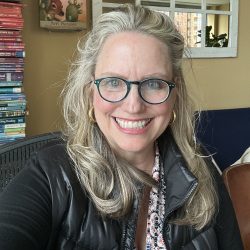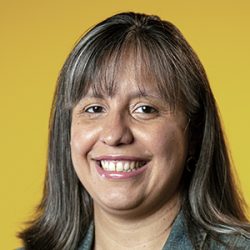Contact Us
-
Graduate Admissions212-875-4404
-
Program Director, Bilingual/Dual Language, TESOL, and Childhood Special Education Programs
-
Chair, Teaching & Learning Programs212-875-4474
Childhood Special Education Advanced Certificate
Non-Degree
-
Program Overview
The Childhood Special Education Advanced Certificate program extends and deepens current educators’ practice to be model teachers in specialized settings.
This program is for teachers and prospective teachers like yourself, wishing to work with children with variations in grades 1 through 6. As a student in your program you have the opportunity to work in a range of special education settings. This includes children from diverse racial, ethnic, socioeconomic, and linguistic backgrounds. You will think specifically about designing accessible curricula and differentiated experiences for children with a variety of social, emotional, behavioral, physical, and cognitive profiles. You will:
- Construct developmentally responsive learning experiences that encourage all learners to follow their curiosities.
- Create accessible curricula so all learners can explore literacy, literature, mathematics, science, arts, and social studies content.
- Develop a strong social justice focus in order to advocate for and with children and families.
- Plan for dynamic and collaborative partnerships with families and school professionals.
- Engage in critical explorations of yourself, others, and the wider world.
This is a 15-21 credit certificate program that does not lead to a master’s degree.

-
Admissions Requirements
In addition to the main admissions criteria, there are additional requirements needed to apply for this program:
- Applicants must already hold a valid New York State certification in General Education at the Early Childhood or Childhood level. If you are certified at the Early Childhood level, there may be additional Childhood tests you need to take to become certified in working with Students with Disabilities (1st-6th grade).
- Applicants must have a master’s degree in education with a 3.0 GPA or higher from an accredited institution of higher education.
-
Coursework
-
Supervised Fieldwork/Advisement
Our unique supervised fieldwork program is designed to support your integration of theory and practice. You will:
- Be supervised by your advisor, a core graduate faculty mentor and experienced teacher.
- Participate in a weekly conference group of 5-7 students and your advisor.
- Reflect on a lesson with your advisor once each month.
- Meet individually with your advisor once each month.
- Complete projects to help you take a deeper look at the setting and students you work with.
Supervised Fieldwork/Advisement is not required for those students who have previous experience teaching in an inclusive classroom.
If you do not have experience in an inclusive classroom you will work in a classroom setting as a full-time head teacher or assistant, or as a student teacher (3 days each week):
- As a student teacher you will be placed in one special education setting within grades 1-6.
- As a working head or assistant teacher you will use your own classroom as your fieldwork.
-
Career Opportunities
Childhood Special Education Advanced Certificate graduates go on to:
- Teach in special education or inclusion classrooms in public, charter or independent schools.
- Tutor or work as a learning specialist in schools or in private practice.
- Work in special education teacher support services (SETSS) roles.
- Work as a special education coach or consultant.
-
Faculty
 Pamela JonesSupervised Fieldwork Advisor & Course Instructorpjones@bankstreet.edu 212-875-4660
Pamela JonesSupervised Fieldwork Advisor & Course Instructorpjones@bankstreet.edu 212-875-4660 Nesta MarshallSupervised Fieldwork Advisor & Course Instructornmarshall@bankstreet.edu 212-875-4559
Nesta MarshallSupervised Fieldwork Advisor & Course Instructornmarshall@bankstreet.edu 212-875-4559 Sean O’SheaSupervised Fieldwork Advisor & Course Instructorsoshea@bankstreet.edu 212-875-4486
Sean O’SheaSupervised Fieldwork Advisor & Course Instructorsoshea@bankstreet.edu 212-875-4486 Susie RolanderContent Specialist, Supervised Fieldwork Advisor, Course Instructorsrolander@bankstreet.edu 917-751-3415
Susie RolanderContent Specialist, Supervised Fieldwork Advisor, Course Instructorsrolander@bankstreet.edu 917-751-3415 Elizabeth Silva DiazProgram Director, Bilingual/Dual Language, TESOL, and Childhood Special Education Programsesilva@bankstreet.edu
Elizabeth Silva DiazProgram Director, Bilingual/Dual Language, TESOL, and Childhood Special Education Programsesilva@bankstreet.edu -
Certification
When you complete the Childhood Special Education program you will be eligible for your:
- Initial certification Teaching Students with Disabilities, grades 1-6: for those who meet experience requirements and pass state assessments.
After teaching for three years you will be eligible for professional certification.